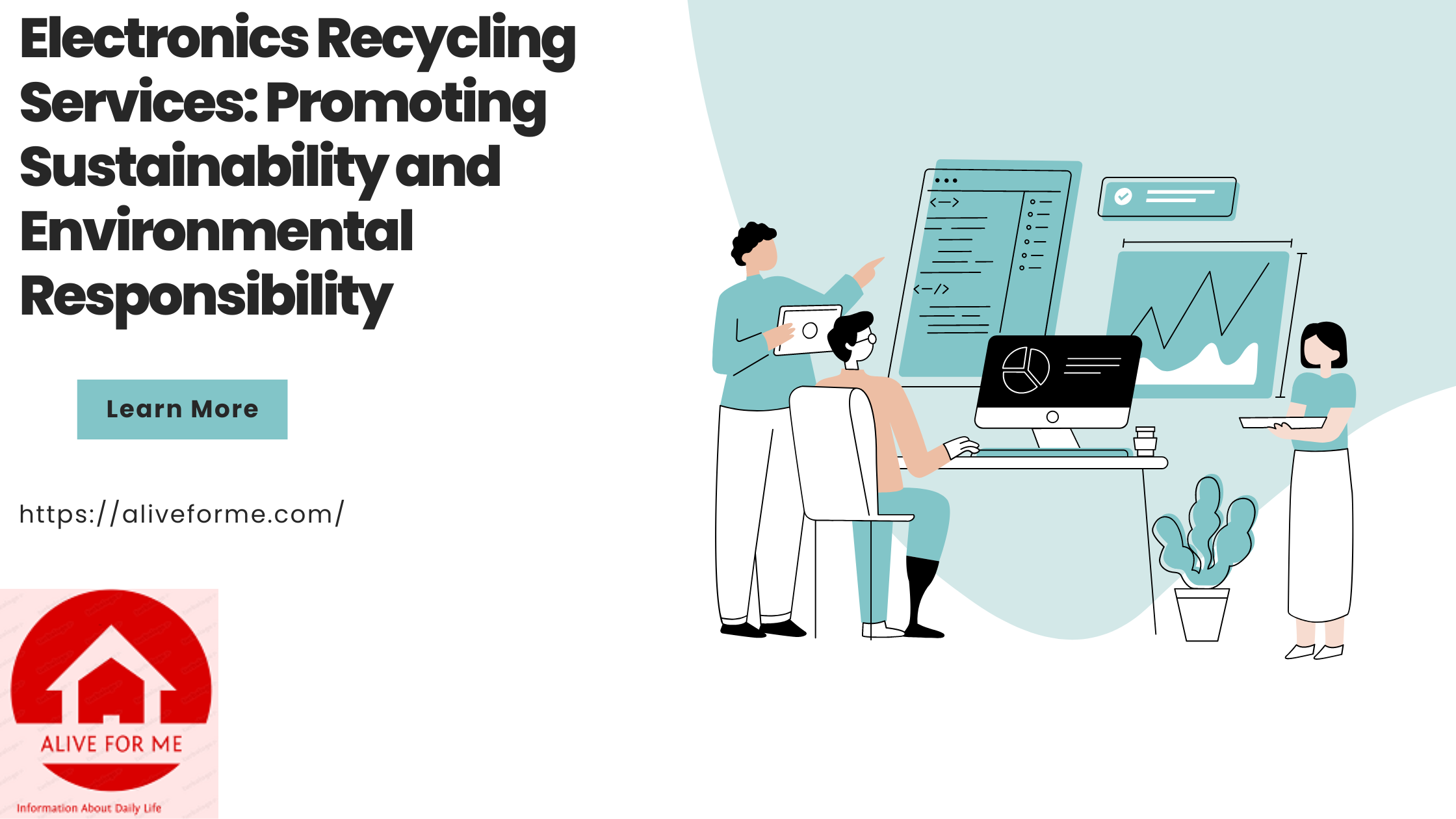Introduction
In moment’s technologically driven world, electronic bias have come an integral part of our lives. Still, the rapid-fire advancement of technology has led to a significant increase in electronic waste(e-waste). Discarded electronics can pose serious environmental and health risks if not disposed of properly. That’s where electronics recycling services come into play. These services aim to promote sustainability and environmental responsibility by safely and efficiently recycling old and unwanted electronic devices. This article explores the importance of electronics recycling services, their benefits, and the proper methods of recycling electronics.
Importance of Electronics Recycling
Electronics recycling plays a crucial role in minimizing the environmental impact of e-waste. Electronic devices contain various hazardous materials such as lead, mercury, cadmium, and brominated flame retardants. If improperly disposed of, these substances can contaminate soil, water, and air, leading to detrimental effects on human health and the environment. Recycling electronics ensures that these harmful substances are safely extracted and disposed of, preventing them from ending up in landfills or being incinerated.
Benefits of Electronics Recycling
Electronics recycling offers several significant benefits, both from an environmental and economic perspective. Firstly, it reduces the strain on landfills. E-waste is one of the fastest-growing waste streams globally, and landfills are running out of space to accommodate it. By recycling electronics, we can divert a substantial amount of waste from landfills and minimize the associated environmental risks.
Secondly, electronics recycling conserves energy. The production of new electronic devices requires significant amounts of energy and resources. By recycling and reusing materials from old devices, we can significantly reduce the energy consumption and carbon emissions associated with manufacturing new products.
Moreover, electronics recycling helps prevent illegal dumping and the export of e-waste to developing countries. Some unscrupulous entities engage in illegal practices, such as exporting e-waste to countries with lax environmental regulations. This not only harms the environment but also exposes workers to dangerous conditions when handling the waste. Proper recycling ensures that e-waste is managed responsibly and in compliance with relevant regulations.
Additionally, electronics recycling stimulates the economy by creating jobs in the recycling industry. The process of recycling and refurbishing electronic devices requires skilled workers, leading to employment opportunities in collection centers, sorting facilities, and recycling plants.
Proper Electronics Recycling Methods
When it comes to recycling electronics, it’s essential to follow proper methods to ensure effective and safe disposal. Here are a few guidelines to consider:
1. Find a certified electronics recycler: Look for reputable recycling services that are certified and comply with industry standards for responsible recycling. These certifications ensure that the recyclers follow environmentally sound practices and adhere to strict guidelines for handling e-waste.
2. Data destruction: Before recycling any electronic device, ensure that all personal data is securely erased. Many recycling services offer data destruction services to protect your privacy. If you’re recycling a mobile phone or computer, perform a factory reset or use specialized data wiping software.
3. Separate batteries: Remove batteries from electronic devices before recycling. Batteries require special handling due to their potential to leak hazardous materials. Many recycling programs have specific procedures for battery disposal.
4. Recycle all electronics: Don’t limit yourself to just recycling large devices like computers and televisions. Small electronics such as smartphones, tablets, printers, and even headphones can also be recycled. Many electronic retailers and recycling centers accept a wide range of devices.
5. Donate or trade-in: If your electronic device is still in working condition, consider donating it to charities, schools, or organizations that accept used electronics. Some retailers also offer trade-in programs, allowing you to exchange old devices for store credit or discounts on new purchases.
Conclusion
Electronics recycling services are vital for promoting sustainability, reducing e-waste, and protecting the environment. By recycling electronic devices, we can minimize the release of hazardous substances, conserve valuable resources, and reduce the strain on landfills. Moreover, electronics recycling offers economic benefits by creating jobs in the recycling industry and stimulating local economies. Remember to follow proper recycling methods, choose certified recyclers, and securely erase personal data before disposing of electronic devices. Together, let’s embrace electronics recycling as a responsible and environmentally conscious practice.


[…] Electronics Recycling Services: Promoting Sustainability and Environmental Responsibility […]